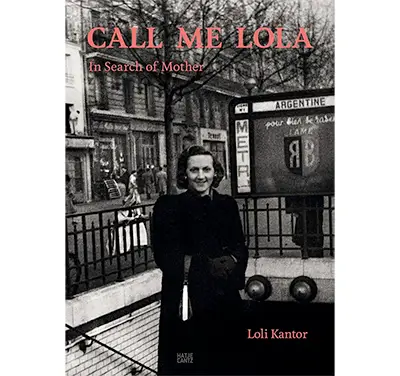''I feel that my mother was not fully recognized during her lifetime, nor after she died. Between being a mother and an artist, with this work, and the time I’ve spent with the images and documents, I honor her. I’m expressing my love for her, bringing her back to life, and giving her a voice.'' — Loli Kantor
Call Me Lola: In Search of Mother (Hatje Cantz, November 2024) is the culmination of Israeli-American photographer Loli Kantor’s extensive 20 year process retracing her own history through surveying and photographing family archives, as well as present-day places and geographies meaningful to her and her family's history such as Poland, France, Ukraine, Germany, and Israel.
Kantor's moving visual exploration of identity, family, and memory unfolds throughout the pages of this exquisite book. Kantor’s mother Lola died two hours after giving birth to her daughter in Paris. Over the course of her life, Kantor learned about her mother indirectly through images, artifacts, and documents.
Both her parents were Holocaust survivors, her father a Polish-born doctor and political activist, and her mother, who passed as a Polish Roman Catholic with false documents to escape the Nazis during the German occupation of Poland. Kantor’s father died suddenly at age 50 when she was 14, her grandparents perished in the Holocaust, and her only remaining blood brother Ami, also died unexpectedly and at age 50. With his death, Loli experienced the loss of her nuclear family - Zwi, Lola, and Ami.
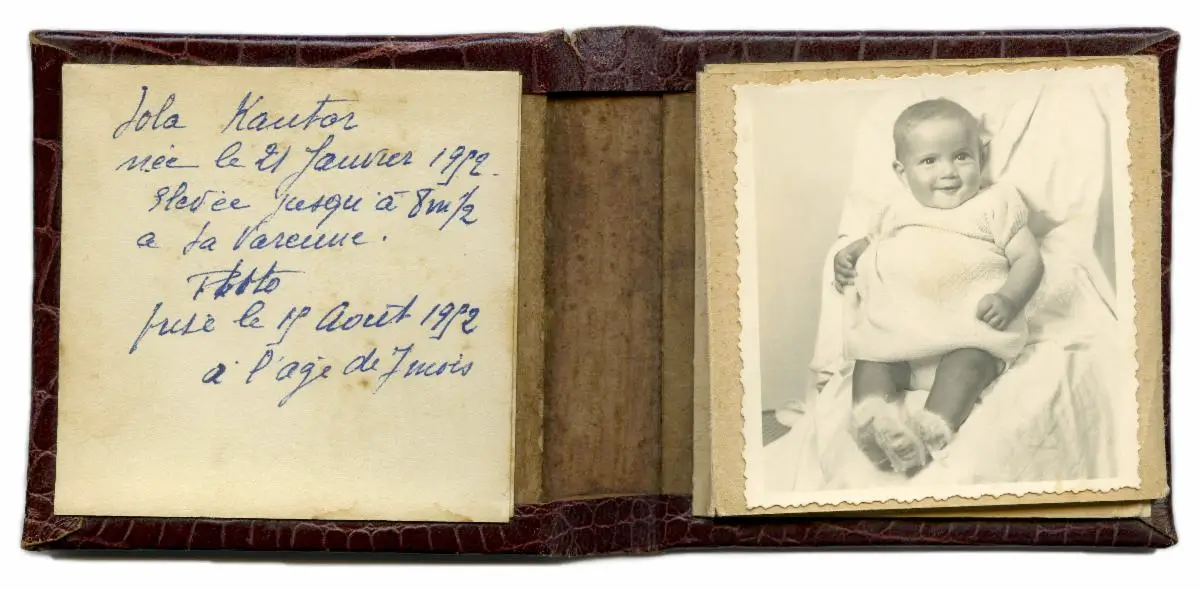
Farewell gift from Madame Alice Alloncle to Loli, August, 1952.
Over the course of her life, and intentionally through the creation of this project, Kantor became a historian of her own history, and also that of generations before her. Throughout the book are Kantor's self portraits, photographs of herself as a child, and her personal annotations on photographs she took of ephemera such as her mother's passport, all combining with the historical documentation and landscapes to provide a kind of evidence and overlay of Kantor's own self, perceptions, and intertwining narrative.
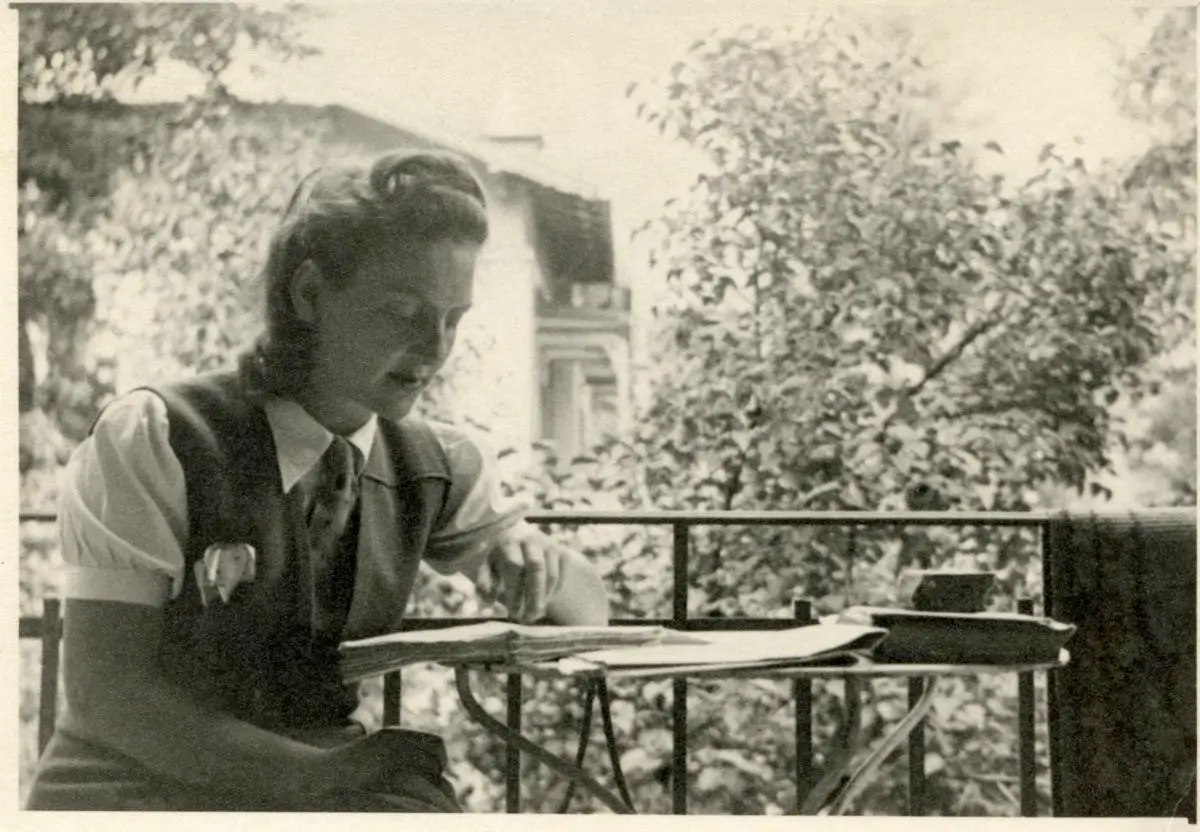
Lola, Munich, Germany, date unknown, unidentified photographer
The book includes a conversation between Kantor and her daughter Danna Heller who asks Kantor about the role and intention of the annotations and personal markings. Kantor replies, By annotating parts of the archive and leaving the notes visible, I make the documents my own. The hand notations reveal my research process and discoveries; they can clarify something written in another language, though I also like the enigma of not understanding. My annotations connect me to the document, and I become a part of it.
The grief that accompanies loss is evidenced in the documents and photographs that play a role in Kantor's identity and definition through her family's history. The book is a meditation on Kantor's own personal losses and the reconstruction of a family history and life, while also holding the reflective historical depth of considerations around the global historical tragedy of the Holocaust.
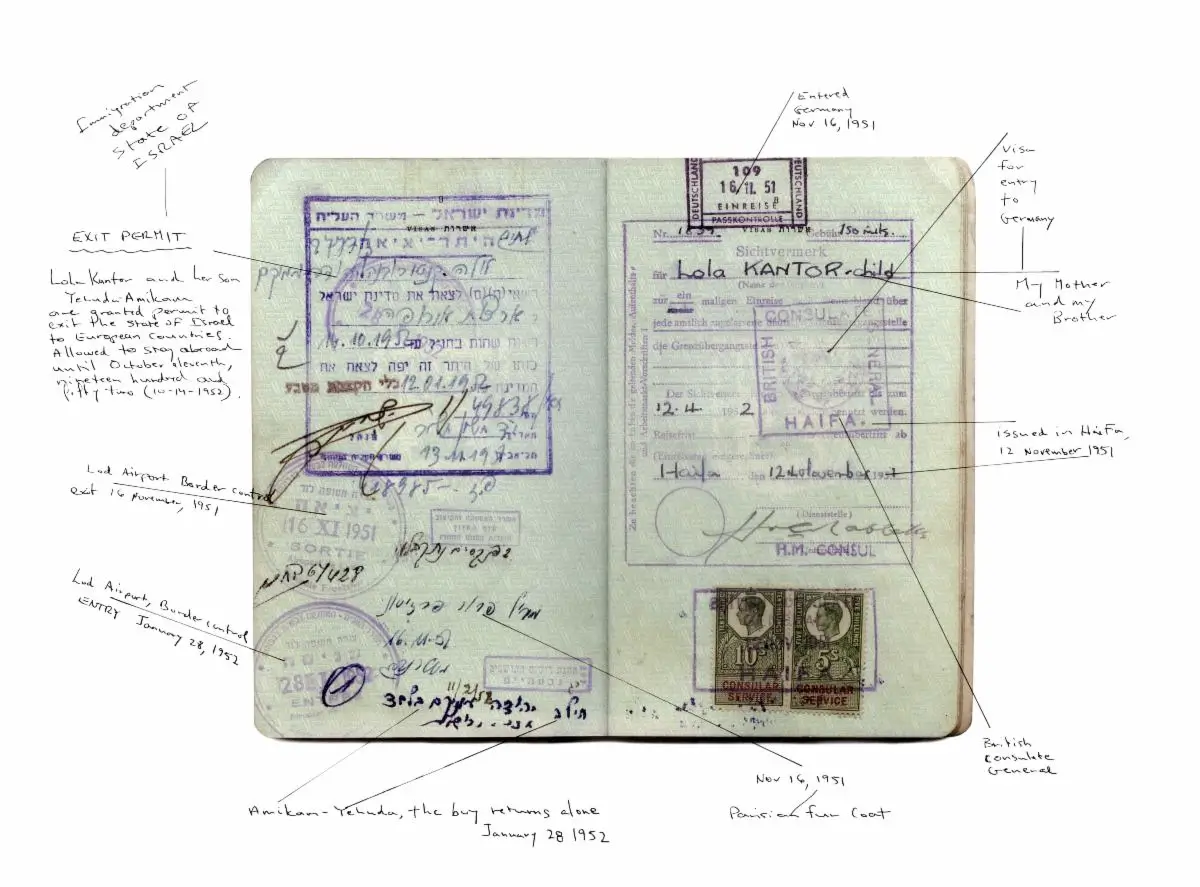
Lola Kantor, Israeli Passport to travel to Europe,1951, Handwritten Annotations by Loli Kantor.
Loli reflects, You can say it is a signifier of the central theme of my life, where life, death, and grief are so closely intertwined. I was completely shaken when I began to discover these documents. The documents were never presented to me by anyone, at any specific time, or in any order. As I began to read them carefully, I realized what each of them was. They made the story more profoundly tragic to me, and my mother more real. I was impressed by the fact that my father kept them: it showed me how much he cared for her and cherished her memory.
Historian and curator Dr. Nissan N. Perez wrote an essay that is included in the book and he reflects on Kantor's exploration and integration of self throughout the project, writing, In Loli’s case, family photographs are a treasure, but at the same time they are evidence of loss and the absence of intimacy. They become a source of mourning, pain, and trauma. For her, however, most of the objects and photographs do not and cannot induce recollection, as the facts and incidents they document were not lived or experienced by her. Some of the faces are of people she never met. Consequently, the process of foraging through and sorting the family archive has one goal: to create a corpus of nonexistent memories that would help Kantor define herself within a chaotic family history.
Kantor has published two other books related to cultural and personal memory and histories. One monograph, published in 2014 by University of Texas Press, Beyond the Forest, Jewish Presence in Eastern Europe, centers around Jewish identity and cultural renewal in East-Central Europe, focusing mostly on Poland and western Ukraine. In 2009, the first incarnation of the project was presented in a self published artist book, There Was a Forest: Jewish Life in Eastern Europe Today, 2005-2008.
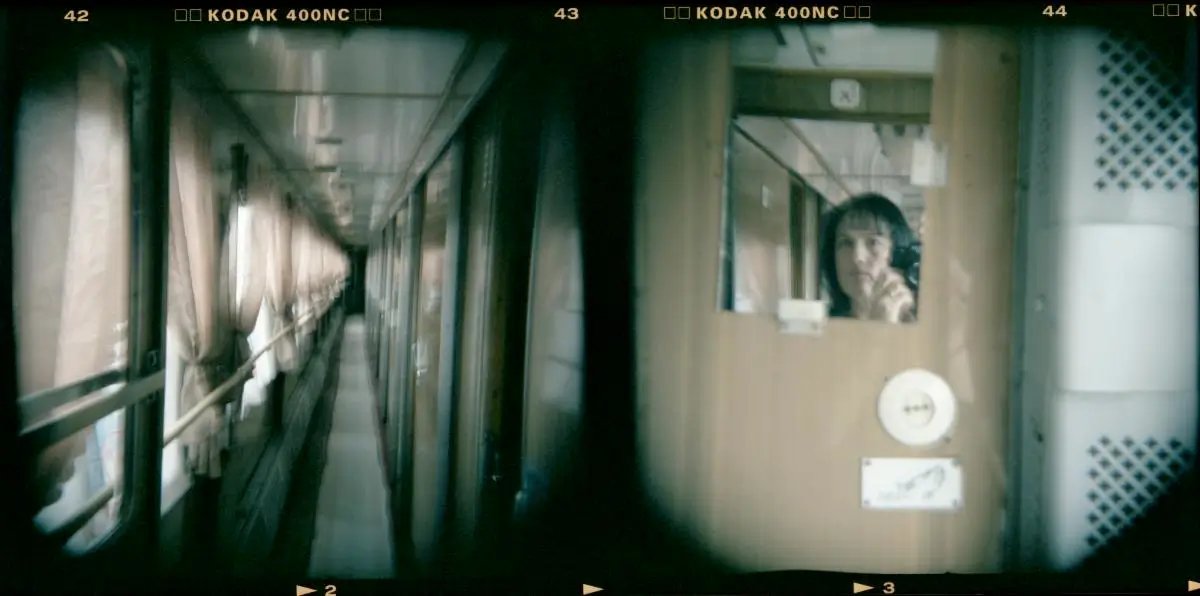
Self-portrait on the train between Lviv and Krakow, 2006. © Loli Kantor
is an Israeli-American photographer and documentarian whose work centers on personal, community, and cultural memory. She was born in Paris, France, and raised in Tel Aviv, Israel. She immigrated to the United States in 1984 and has since lived in Fort Worth, Texas. Kantor’s photographic work has received a number of awards and recognitions. It is included in museum collections such as the Museum of Fine Arts, Houston; The Harry Ransom Center at the University of Texas at Austin, Texas; Lviv National Museum, Lviv, Ukraine; Bruno Schulz Museum in Drohobych, Ukraine; Galicia Jewish Museum, Krakow, Poland; and Lishui Museum of Photography, Lishui, China, as well as numerous institutions and private collections in the US and abroad.
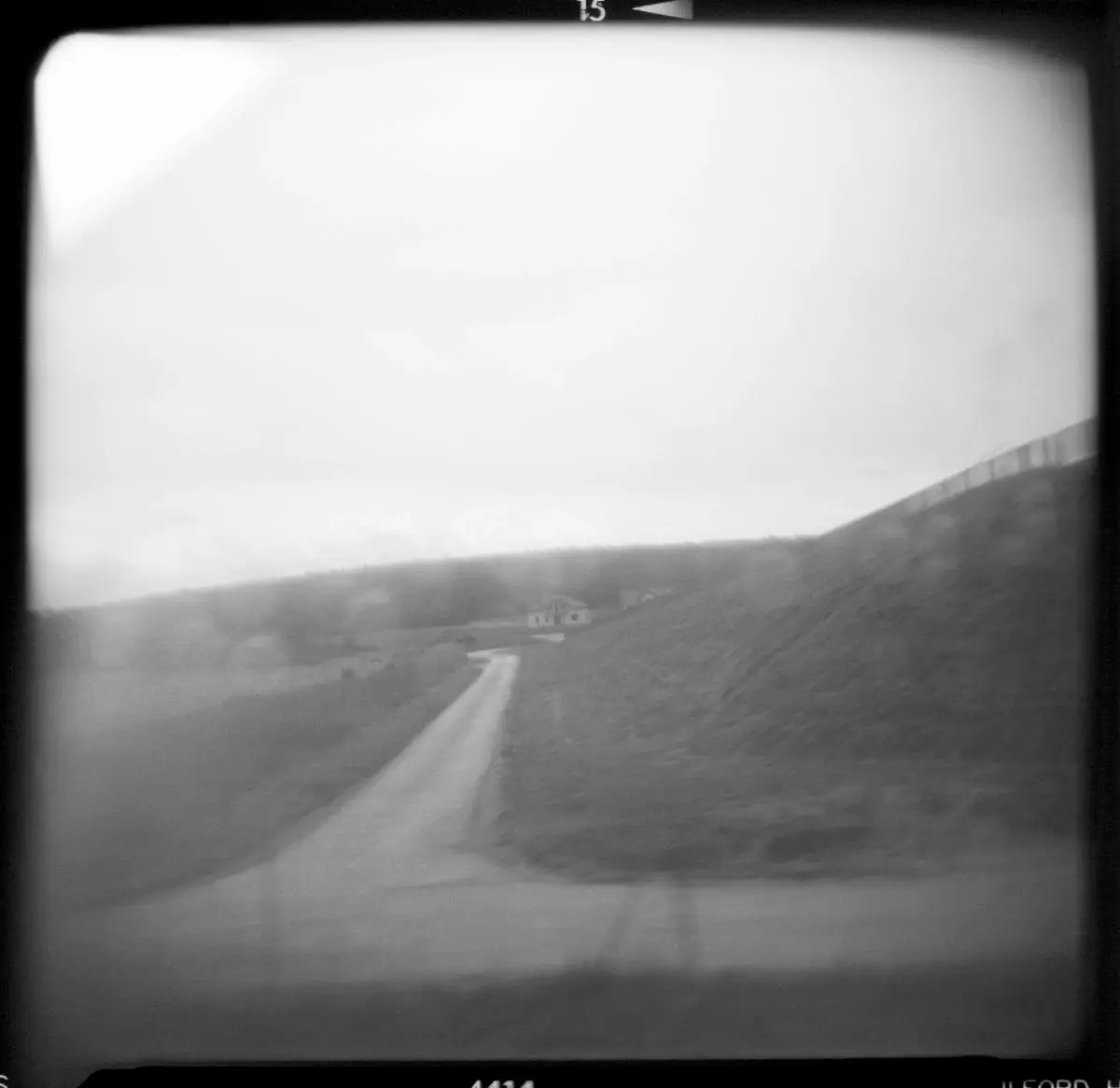
Poland, 2018 © Loli Kantor
is a London-based curator, art historian, and director of cultural organizations. An Israeli native and Loli Kantor’s Daughter, Danna Heller grew up in Fort Worth, Texas, and has spent time living and working in Israel, Belgium, and the United Kingdom. Currently she is the UK director for the Bezalel Academy of Arts and Design Jerusalem, and formerly was the executive director of the British Friends of the Art Museums of Israel. Her curatorial portfolio includes international contemporary art exhibitions, conferences, and performance projects showcasing leading artists at venues including the National Gallery Prague, Hauser and Wirth Gallery London, the Tel Aviv Museum of Art, The Israel Museum Jerusalem, and the Eretz-Israel Museum Tel Aviv. Danna holds an Executive MBA from Imperial College Business School London, and an MA in Art History and Museum Curation from Tel Aviv University.
Nissan N. Perez is a photography historian, researcher, and curator. He was born in Istanbul, Turkey, and immigrated to Israel in 1967. He studied psychology, philosophy, and art history at The Hebrew University, Jerusalem, and obtained his PhD from the University of Brighton, UK. A former photographer, he was appointed senior curator of photography at the Israel Museum, Jerusalem, where he founded and headed its photography department and assembled its extensive collection. Following his retirement, he served as vice president of the Shpilman Institute for Photography. Currently, he is the director of the Moi Ver archive in Tel Aviv and also acts as an adviser to artists and institutions. During his career, he published a considerable number of books, catalogs, and articles, and curated over 200 exhibitions in Israel and worldwide.
